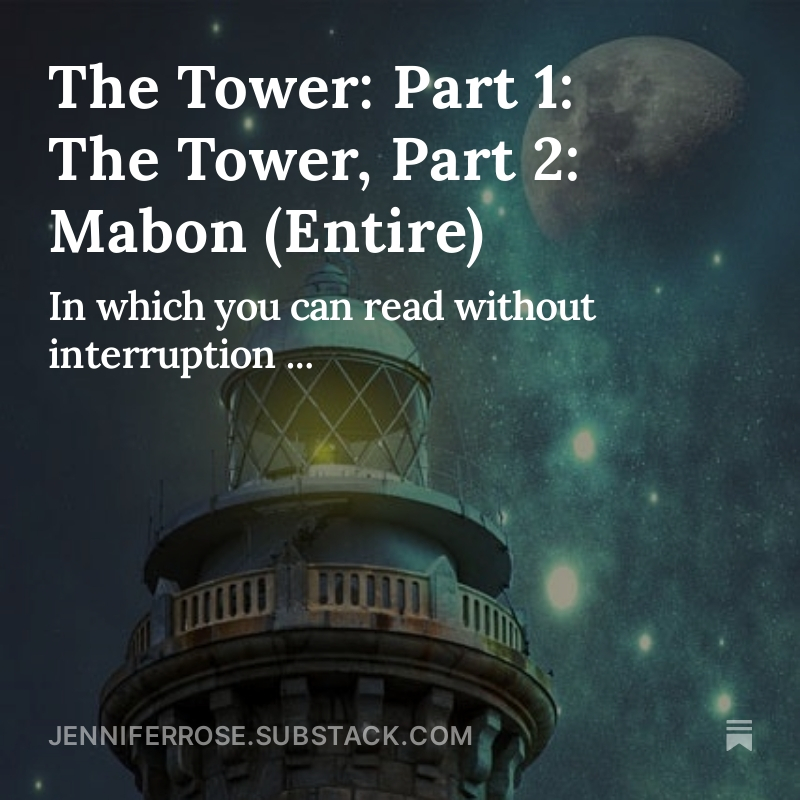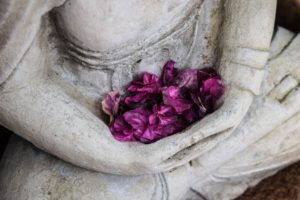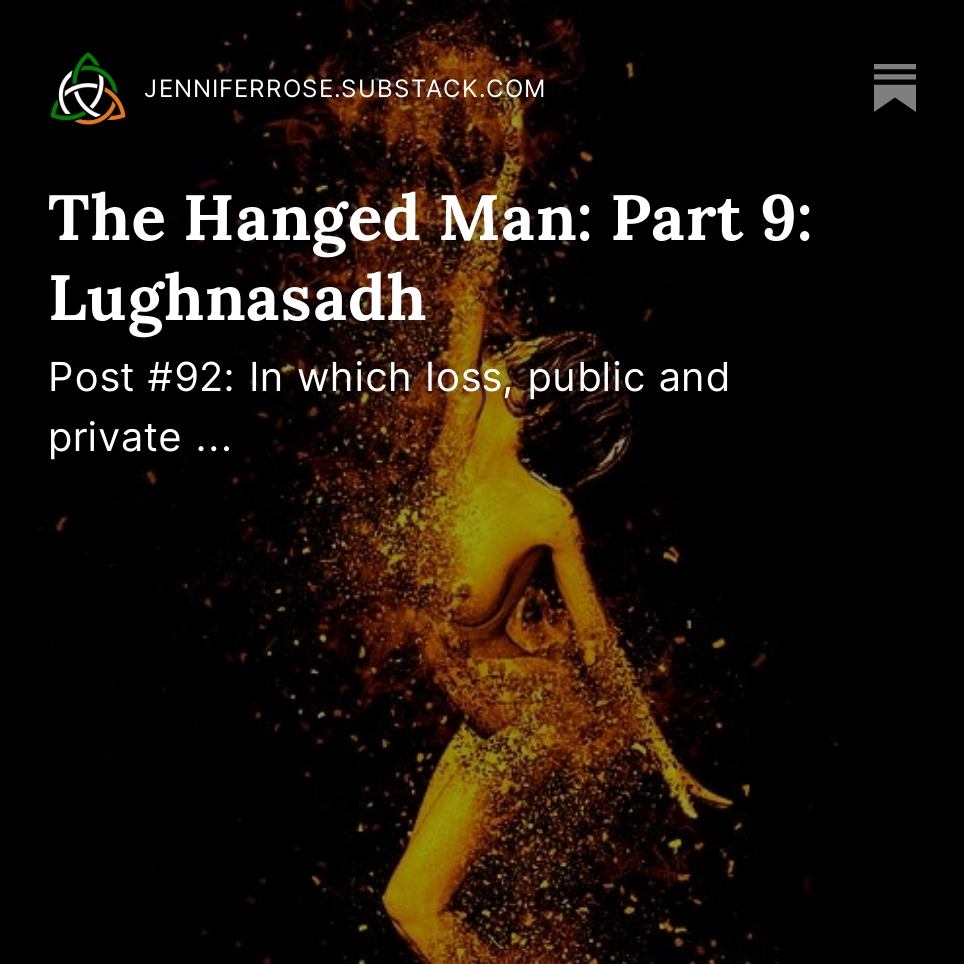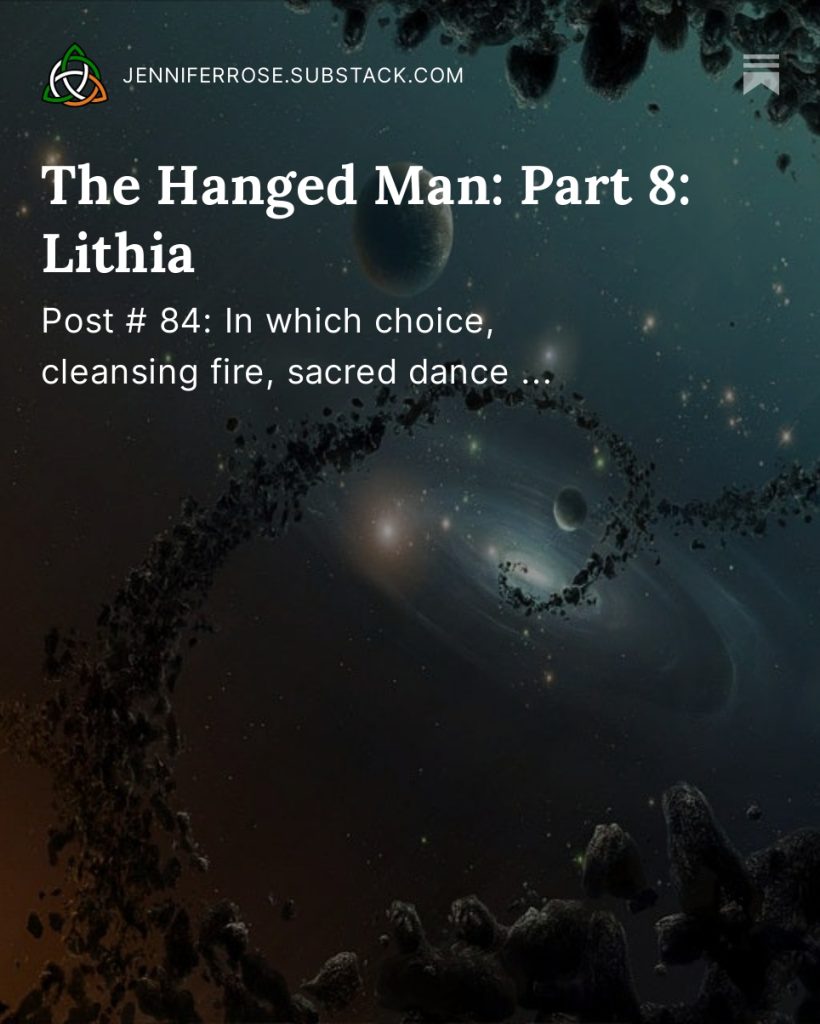by Jenny Rose | Apr 13, 2024 | Connection & Community, Emotional Intelligence, Shadows
I have felt, for a period of some years and more frequently since 2016, that the planet would be better off without human beings. I’ve said it, I’ve thought it, and this is the first time I’ve written it. I would be happy to be the first in line, gladly give up my life in the certain knowledge that without us, Earth could heal, cleanse itself, and nurture all the countless species we have failed to notice, value, and cherish. Let the rape stop. Let the wide-scale poisoning stop. Let the brutality, suffering, stupidity, greed, and criminal disregard for others stop.

Photo by NASA on Unsplash
I freely admit to the pessimism and bitterness inherent in my view. I’m also aware of how paradoxical it is. I truly care about most people. Put a single human soul in my path, and I rarely fail to make a connection and feel some kind of empathy and kindness for them. I’ve spent my life caregiving, supporting, and teaching people, taking great joy in my contribution.
In my last few posts, starting with “The Locked Room,” I’ve thought a great deal about self-love and self-trust. It occurs to me my despair over human behavior as a whole must include me. My willingness to see us all wiped out includes a willingness to be wiped out myself. If other humans are capable of the atrocities happening all around us every day, so am I. If I want to see that dark potential destroyed, if I’d be glad of it, even, my self-love is seriously incomplete.
I’m not sure I’d call it self-hate. I don’t hate myself, you, the stranger on the street, or friends and family, but I hate what we are capable of. I hate what we can (and in some cases choose to) do. I believe some of us are willing to heal, grow, change, unite, and make better choices, but right now most of the human power in the world (as we understand power) lies in the hands of a few louts nobody seems to be able to overcome. Indeed, many cheer them on.
And that could be any of us, cheering them on. In the right context, with the right ideology, it could be any of us. I am too old to tell myself fairy stories about how I would never fill-in-the-blank. Easy to say as I listen to my sheets rotating in the washing machine, drink clean water from my tap, notice the old copper pipes rattling as the furnace comes on, and type on my laptop in my fully electrified, clean, intact house in a peaceful neighborhood on a Saturday morning with my feet propped up on my desk. I am sane. I am healthy. I am well-fed, housed, and employed. Most people do not have the luxuries I take for granted, the safety, the peace. People do terrible things out of terrible pain and dysfunction. I am not immune. None of us are. I’ve been fortunate, and that’s through nothing but luck.
A few weeks ago I read a piece by an author on Substack, Anna Kay, who writes a newsletter called The Hinterlands. I stumbled across her “A World Without a Heartbeat” by chance. She was not a writer I was familiar with, though I have since subscribed to her. She turned me inside out. I wept. I was comforted. I was awed and envious of her evident belief in human goodness. I was softened. I was challenged.
Most of all, I was challenged. As I read her words, I glimpsed a different frame, a frame of hope rather than bitterness.
I could not possibly paraphrase her words and I wouldn’t dare try to give you a synopsis. It’s not a long piece, and if you only follow one link out of the hundreds I’ve posted here in the last eight years, let this be the one. Please.

By Photoholgic on Unsplash
What moved me most was a world without humans would be a world without stories. A world without stories, a world without music, a world without art. A world without reverence and gratitude for nature. A world without human appreciation. Somehow, that seems like a terrible loss. I’m not sure why. Wouldn’t the planet be every bit as rich and beautiful if no one enjoyed it? Surely it would. Yet the loneliness of feeling unseen and unappreciated hurts because I’ve lived in the heart of that feeling.
The question I ask myself is am I willing to allow some or all of my bitterness to dissolve in order to deepen my ability to self-love? Bitterness is a heavy burden and there’s plenty in the world. Do I need or want to add to it? Is it useful?
It’s true we humans are capable of terrible things. Isn’t it also true we’re capable of remarkable courage, generosity, intelligence, creativity, and love?
Couldn’t we each make a list of human teachers, guides, beloved ones who have inspired us, protected us, and made us smile as well as a list of those who have done us wrong?
Our choice is which list to make, which to dwell on.
I’ve become deeply involved with the Substack community. I follow several other creatives simply because they inspire me. They make me feel better about the world, about life, about myself. They balance some of my despair and horror regarding the state of the world with beauty and hope. I’d like to introduce you to some of them:
Questions:
- Do you believe humans have value as a species? Why or why not?
- What human-driven activity gives you hope?
- Do you see humans as part of a healthy planet or an invasive species, wiping out all competitors?
Leave a comment below!
To read my fiction, serially published free every week, go here: 
by Jenny Rose | Nov 4, 2023 | Emotional Intelligence, Feelings, Love
Elizabeth Gilbert is on Substack, and I follow her. Best known for her breakout novel, Eat, Pray, Love, she’s a journalist, speaker, and writer. Her Substack is called Letters From Love and more than ten thousand subscribe.
Letters From Love is the most uncomfortable Substack I read. I write that statement with wry humor. The premise is writing love letters to oneself.

Photo by Angelina Litvin on Unsplash
When I first came across it, I was equally horrified and attracted. I poked around, reading here and there, and realized quickly Elizabeth and I share certain experiences. I already knew this, because years ago I came across her brilliant piece on tribal shaming, which I immediately blogged about.
It takes one to know one.
When I found Gilbert on Substack I subscribed, so her newsletter comes regularly into my Inbox. Sometimes I ignore it for days, but sooner or later I open it and read. She posts love letters she’s written to herself. Publicly! She also has a podcast, does interviews, and posts love letters others have written to themselves.
(Cringe.)
I can’t help but notice my violent reactions. Me being me, I don’t choose to turn away and read something more comfortable. I have questions. What is my deal? I’ve been working for more than ten years on self-care and self-love, on reparenting myself and healing old trauma. Why am I not delighted with the idea of a practice of writing love letters to myself?
(Shudder.)
My first reaction is to crawl through the screen and beg her not to expose herself like this. Beg them all not to expose themselves. Don’t they understand how dangerous it is? Haven’t they learned a display of this kind of vulnerability will attract destroyers with stones and blades and (worst of all), terrible, terrible words of contempt? Oh, and don’t forget lethal indifference.
(If you’re not paying attention, I’ve now told you everything you need to know about the way I grew up.)
Except clearly the sky is not falling. More than ten thousand people are reading Gilbert’s love letters, and she goes on writing and publishing. The discussions within her community are neither indifferent nor contemptuous. On the contrary, they’re supportive and tender.
Which leads me to conclude my red alert reaction is about me rather than the practice of writing love letters to oneself.
Hm.
How can they do this? I wondered.
Could I do this?
No, no, no, not to publish! I reassured myself hastily. Just for me. Like my journal. My eyes only. A delete key. No one ever needs to know.
But there was a problem. Elizabeth writes to herself with endearments. Creative, funny, quirky endearments, like “my glinting little piece of foil from a gum wrapper.”
OK, now that’s fun! Words are so much fun!
What kind of endearments would I address myself with?
I’ve had pet names for my kids and my animals. No one else, really. Certainly not myself. My tone with myself has mostly been the harsh, hectoring, contemptuous, cold voice I internalized from the adults around me as a child.
More discomfort.
But, words … If I had a child just like the child I was, what endearments would make her giggle and feel loved and seen?
So I started a list of whimsical endearments. A very private list. So don’t ask! I was a little ashamed of myself, but no one else need ever know …

Photo by Chris Ensey on Unsplash
The list was fun, because it was a creative exercise. I can do creative exercise. It occurred to me part of my resistance to love letters (either giving or receiving) has to do with my disbelief in words. (Ironic.) Words can say anything. People say anything. The proof is in action. The older I get, the less interested I am in words, and the less I believe them. Demonstrate. Act. Show me, don’t tell me. As I’ve worked to heal I’ve developed routines for self-care, for eating well, for exercise, for sleep, for writing. I’ve been successful, and take much better care of myself than I ever have before. I take better care of myself than anyone ever has before, in fact.
But I haven’t written love letters to myself. I would have told you I could do so, if I wanted to. If I thought they’d have value. If I thought I’d believe them …
I grew up with emotional withholding. I’ve believed I’ve broken that pattern with my own children and my loved ones, including my animals. But now I wonder. Isn’t demonstration of love with no words a little sterile? I know the mixed message of loving words and abusive actions is devastating. Is active demonstration of love without words also confusing? Am I withholding from myself? Obligation, responsibility, duty – all these I’m very good at. But those are stony words. Where is the tenderness, the humor, the generosity? How about compassion? I feel those for others. I’ve spoken them from the heart; written love poems, love letters, notes, and cards – for others. Could I learn to feel and express them for myself?
Then I got sick with COVID, the events of the last couple of years (traumatic, protracted move; my mother’s decline and death) caught up with me, and I felt miserable. At once, I began putting pressure on myself to get back to writing, get back to work, get back to exercise, take out the trash, do the shopping, and generally pull myself together, because, after all, the world is full of bleeding, suffering people and I have a good life, a privileged life, and don’t deserve to feel sorry for myself and be lazy.
Not a love letter, in other words.
In the middle of the week during which I sat on the couch, alternately shivering and burning and blowing my nose, I wrote myself a love letter.
Well, maybe a let’s-see-if-I-can-tolerate-you letter.
It was an extremely strange experience. In fact, it made me cry, which didn’t help my congestion. Or my cough. At the time I had no sense of taste or smell, and I reflected that it was like that. When I tried to turn toward myself with love, tenderness, affection, whatever you want to call it, there was nothing. Just … nothing. A thick, numb shell between me and myself.
It made me so sad. Immediately upon the heels of that, I was ashamed. Because, you know, self-pity.
Almost as bad as self-love.
Wait now, what?
It’s bad to love yourself … if you don’t deserve it.
And, readers, I thought I’d left that belief far behind in the dust.
Then I began to feel angry, and I told myself I was going to start practicing writing love letters to myself. Because I deserved and deserve love as much as anyone else. I’m not important enough to be the most loathsome person in the world.
Questions:
- How does the idea of this practice make you feel? Can you write a love letter to yourself? With endearments and everything?
- If you could write a love letter to yourself, how would you feel about making it public?
- What do you most need to hear from someone who loves you? Would it have power if you wrote it to yourself?
Leave a comment below!
To read my fiction, serially published free every week, go here: 
by Jenny Rose | Sep 9, 2023 | Choice, Power
I’m a spinner, a speeder, a thought racer. (Yes, I know it doesn’t help. I know rocking chairs and hamster wheels go nowhere. I know worrying is pointless.) Under the right conditions, the inside of my brain is like a dusty attic filled with hysterical cats zooming in all directions, climbing the walls, knocking over piles of junk, filling the air with dust and yowls. Chaos. Destruction. I call it speeding. I call it anxiety. The world calls it racing thoughts.
Whatever we call it, it’s a miserable state of mind, and a common one.

Photo by Quino Al on Unsplash
Herding cats, as any cat lover will tell you, never works. Sheep, maybe. Cows. But not cats.
However, at times familiar life goes off the rails in such varied, complex, and unforeseen ways I find myself once again herding cats, usually during the hours I need to be sleeping, though sometimes those hours bleed over into days when I’m supposed to be focusing. On something productive or something relaxing or something. But all I’ve got are catapulting (pun intended) thoughts and emotions racing around in my brain.
Not long ago, before the start of my current cat rodeo, I read somewhere (probably Substack) about The Rule of 9s. I’ve since gone back to look for it, but I can’t find the original source. Anyway, I didn’t come up with it myself. I wish I had.
The Rule of 9s is a tool used to identify what really matters. Or, if you like to look at things bass-ackwards, like me, what really doesn’t matter.
This morning, for example. I could garden, work on business at my desk, write, or make a Spotify playlist. I have just under two hours at my disposal before I head off to work.
I have a lot of desk business just now as my brother and I (mostly my brother) wind up my recently deceased mother’s estate and deal with our inheritance. By inheritance, I mean not just assets, but the inevitable emotional inheritance we all receive from our families of origin. What I’ve heard is true. When a parent dies, we cannot be prepared for the ways it changes us and how uncomfortable some of that change is.
My metaphorical cats – these mixed up thoughts and feelings — pull me in different directions at the same time. Everything feels overwhelming right now. It’s irritating. Two items on my grocery list and I’m overwhelmed. Now and then I have a few minutes free from the inundation, but I get a call, a text, another document to sign, and I’m overwhelmed again.
Fortunately, I just learned The Rule of 9s.
So, the option of gardening. It’s hot outside. Really, really hot and humid. Just when the weather should be getting crisper and cooler, a heat wave has arrived. It will ease in the next couple of days, but it’s brought a resurgence of mosquitoes and it’s not fun to be outside. So, no garden this morning. I’ll wait for cooler weather. Is that a crisis?

Photo by Morgan Sessions on Unsplash
Will gardening or not gardening matter in 9 seconds? In 9 minutes? In 9 hours? In 9 days? In 9 months? It might start to matter then, because I’ll be making spring plans and whatever progress I make this fall will affect those plans. But it’s clearly not urgent. I won’t remember choosing or not choosing gardening today.
Business at my desk. I’ve already done some of that this morning. Balanced the checkbook. Looked for a document I’m waiting on from my bank (not there yet). Made some notes. Did some planning. Considered options. I have money in my account. All the bills are paid. I don’t need to spend anything today. Will taking care of more business or not taking care of more business matter in 9 seconds? Nine minutes? Nine hours? Nine days? It might start to matter at that point, as one thing leads to another as we wade through this process. If I stay on top of tasks, step by step, I know I’ll eventually come out of the tunnel with effective systems in place that work for me and respect my goals and values. Tempting to start herding the cats quivering on my desk, but I only have two hours and nothing is urgent.
Make a Spotify playlist. I may shortly have an opportunity to bring a dance program to the community. I’ve tried several times in years past without success, but I haven’t given up hope. Now that I’m on Spotify (though I have misgivings about how platforms like this fail to support artists), I wanted to get a few of my dance playlists put together. I have them burned onto CDs and in iTunes, but not on Spotify. However, I don’t have any solid dates for dance now. It’s all in the planning stages. At some point it will matter, but not right now.
Writing. It’s my weekend to publish on Harvesting Stones. I don’t have to. It’s not required. But I’d like to, if for no other reason than it’s my usual routine, a stepping stone in the current chaos, and it comforts me to be doing something normal. Not to mention how much I enjoy it. Hard to think about focusing on it, though. All those cats whizzing around …
Will writing or not writing matter in 9 seconds? Nine minutes? Nine hours? Nine days? It won’t matter to the world, but it matters to me. It will matter to me in two days, when Saturday morning comes and I either do or do not have a rough draft I’m happy with.
So I’m writing. And while I’m doing that, miraculously, the other cats settle down. Tired, I guess. Maybe they’ll curl up in the chaos they’ve wrought and sleep a while. Sleep is good.
As I live my life and listen to the inside of my head, especially the anxiety, the fear, the resistance, the catastrophizing, I pull out The Rule of 9s and apply it. Will this matter in 9 seconds? In other words, will I die in 9 seconds if I don’t do whatever-it-is or figure it out, completely and perfectly? How about in 9 hours? (Have you ever noticed how crazy your nighttime I-can’t-sleep thoughts are in the light of day?) In 9 days will I even remember whatever feels stressful this minute? Will the fearful thing I can imagine happening be important in 9 weeks? In 9 months? In 9 years?
The Rule of 9s requires I slow down and think. The questions give me perspective, help me with a reality check. I stop reacting and remember my power to choose. I decide what’s more important than my peace of mind (not much). Hysteria is contagious; so is calm.

Photo by Ryan Moreno on Unsplash
Applying The Rule of 9s settles the cats right down. One or two may still zoom, because cats are contrary like that, but the chaos diminishes as I become intentional and mindful. I can find some focus, at least for a few minutes. I know what to do next, in the next 9 seconds, anyway. The next 9 years can take care of themselves.
Questions:
- What are your strategies for pulling yourself out of racing thoughts and anxiety loops?
- How do you choose priorities?
- Is your experience one of choice in life, or one of reaction and compulsion?
- Share something ridiculous that’s kept you up at night.
Leave a comment below!
To read my fiction, serially published free every week, go here: 
by Jenny Rose | Aug 6, 2022 | Connection & Community, Emotional Intelligence
For part 1 of this post, please go here.
I’ve been exploring this quote from Priscilla Shirer:
“Unity does not mean sameness. It means oneness of purpose.
It’s interesting, how a one-line quote can trigger so much contemplation and so many questions.

Photo by Bewakoof.com Official on Unsplash
I’ve had two conversations with two different friends in the last week about how hopeless we feel to bring about positive change in the current political and social climate because people in general seem unable to unify and work together. A clear leader has not stepped forward. We are increasingly split into factions and too busy with in-groups and out-groups to step back and consider the whole picture.
This is not an accident. Unity is a distinct social advantage and a powerful strategy. It’s also apolitical, which is easy to see on the nightly news. Traditionally large groups are fragmenting into smaller and smaller units. Small groups, by means of forced teaming and other manipulations, are usurping power from established organizations. Current political leaders on both sides of the aisle are losing their followers. As traditional boundaries and frameworks dissolve, chaos and confusion sweep us into a new national and political reality, and it is not unity.
And then there’s capitalism. What we all have in common is an assault on our personhood, the subsummation of a human being into a cash commodity. In other words, how much money are we worth? Can we be manipulated into spending money or persuaded to prostitute for marketers and algorithms, politicians and bloated corporations?
Here, let me bend over and pick up that “free” soap for you.
For years, various people have told me I will never be “successful” if I don’t get on Facebook.
For years, I’ve resisted that assertion. Who made that rule? What is the evidence for that? Who benefits from me being on social media when it’s something I absolutely do not want to do?
I am fortunate to have a central pillar of support for my writing in a close relationship. That person is on FB and consistently, week after week, posts links to my work on his page. A couple of weeks ago, upon posting links to my latest Substack posts, FB threatened to suspend him. Why? Because the image that happened to be grabbed with one of those linked posts was a black and white picture of a nude pregnant woman. Nudity. Horrors. (You can go look at the pic here. Scroll down. You’ll know it when you see it.)
So, here’s the thing. An algorithm did that. It was instantaneous.
I’m not writing for algorithms. I’m writing for people.

Photo by freddie marriage on Unsplash
The hypocrisy staggers me. One can spread whatever mis- and disinformation one likes on FB’s platform. Stalkers and doxxers use it. Hate groups and insurrectionists plan to overthrow the government and kill people on it. Ideologues of all stripes churn out toxic poison on a daily basis. Bots and bad actors, both overseas and home grown, are free to roam, and every single keystroke users make is carefully recorded and mined so everyone can receive exactly the information they want to hear along with advertising they’re most likely to respond to.
The platform has grown and grown, become richer and richer, more and more influential, and less and less about connecting people on a healthy individual level. It’s now a sprawling, unmanageable mess. Users are leaving, and the company cannot adequately police and monitor itself or the activity taking place on the platform. So they look for ways to get even bigger and make more money (by making it more addictive and persuading the culture at large everyone needs an account to be “successful”) and write more algorithms to deal with “inappropriate” content (as defined by the company).
Nudity has been judged as inappropriate content, and because of an image grab over which neither the person posting nor I had any control (there were several other non-naked images in those posts), links to my content were deleted and suspension threatened.
That’ll teach us.
What it taught me is I’ve been right all along. Right to create my own blog and website. Right to find a platform like Substack that does not censor my work. Right to write for readers rather than clicks, stats, and algorithms.
My friend on FB has undoubtedly done much to get my work out there and find readers. No question about it, and I’m grateful every week for his efforts on my behalf.
On the other hand, if the price of “success” is participation on FB, it’s too high. I’m not interested. Not even a little bit. In fact, I feel vaguely I must be doing something absolutely right in order to be banned by an algorithm. I tried to squeeze out a tear of fear and self-pity, but I couldn’t manage it. There’s an ever-growing club of thoughtful, intelligent, science-based, talented people who have been suspended or banned (or both) from FB. I’d be proud to hang with them and I’m glad to read them elsewhere.
What does this have to do with unity? Well, FB was originally about connection, yes? First it was a dating hub. (All right, a getting laid hub. Whatever.) Then it was a way to maintain connections over long distance. Then it grew into a monster that presented every user with a way to maximize a “friends” list while allowing bullying, silencing, stalking, deplatforming, identity theft, hacking, and other behavior people feel they can get away with behind the privacy of their screen and keyboard.

Photo by Quino Al on Unsplash
Where is the unity now? What is our oneness of purpose? Oh, right. We’re unified in being income streams for FB. Lucky old FB.
FB lives because we animate it. Never forget that. We’re the ones who decide no one can be “successful” without it.
Oneness of purpose is a great phrase, but what does it really mean, and how do we get there? Is there any such thing as oneness of purpose anymore? Is our world too complicated for that? Can we come up with a simple overarching statement of purpose, or are we too tangled up in our ridiculous labels and ideologies, too distracted by our outrage and all the people wrong on FB and other social media, to raise our heads and look at the bigger picture?
Do we want our culture to be run by entities like FB that pay lip service to “friends” and “connection” but in actuality work to make money off discord, fear, and disconnection? Do we want our country to be run by authoritarians and corporations? What’s stronger, a handful of small sticks bound together or a handful of splinters? We the people are not powerful enough to make sweeping change individually. Our power, the power of democracy, is in unity of purpose. If we lose our ability and willingness to unify, we’re at the mercy of whatever bloated, narcissistic, moronic, power-mad, lying clown and his train of minions and hangers-on comes along.
And that’s worked out so well.
What I know is I’m writing for you, whoever you are, reading this page. I’m sitting in my green suede chaise with a cat above my right shoulder on the back, the blinds drawn against the heat, the laptop in my lap, writing for you. I’m not writing for FB or an algorithm. I’m not battering you with advertising. I’m not collecting your data. I’m not writing clickbait. I’m not thinking about success, beyond writing a good post, editing it, and publishing it today. Because that’s what I do on Saturdays. I’m not thinking about the money I’ll make, because all my content both here and on Substack is free at this point.
I have no interest in what you’re wearing, what color you are, to whom you pray, how you vote, if you’re vaccinated, what your biological sex or gender expression is. I don’t care where you live. I don’t care how much money you make or have. I don’t care who you love, but I hope one person you love is yourself. I don’t care how old you are, or what you eat, or what your health status is, or what language and culture you were born into.
If you’re reading this, I’m writing for you. If you find anything of value in my work, I’ve succeeded and we’ve made a connection.
There’s no need to hit a like button for an algorithm.
On the other hand, if you find an artistic black-and-white photograph of a nude pregnant woman offensive, you might appreciate FB’s censorship of “inappropriate” material, and you probably won’t enjoy my work.
And that’s okay, too. You won’t find me polluting the pages of Facebook with my obscene pornography.
Those of you who come to me through C. Leo’s Facebook page may want to consider subscribing directly through Harvesting Stones and/or Substack. I don’t know if he’ll continue to try to post links to me and risk suspension or not.
I’m going to continue to write what I write and use the images I like. I’ll let other people worry about whether I’m a “success” or not.
My oneness of purpose: To connect, to think critically, to explore, to question, to discuss, to create, to make a positive contribution.
What’s yours?

Photo by Morgan Sessions on Unsplash
by Jenny Rose | Nov 27, 2021 | A Flourishing Woman, Creativity
As regular readers know, for several years I’ve been writing fiction. I’m now working on the third book in my series, The Webbd Wheel.

After I finished the first book, The Hanged Man, I had it professionally edited twice. I was looking for a reality check. Was it any good at all? Did I need to begin again?
Much to my surprise, my editor praised it warmly.
This was wonderful, but not at all the same as attracting an agent or publisher. The writing’s quality takes second place to the estimated commercial value of the work in the current publishing business model.
I understand this. Business is business and it’s not personal. However, writers like me have very little ability to compete with writers who are proven money-makers.
Books require paper, which comes from trees. I love books. They’re the mainstay of my existence. Yet neither I nor anyone else will survive if we kill all the trees on this planet. I’m not much of a digital reader, though many people are. I’d like to be in print, but the money required to get into print and the possibility those books will not sell are part of what’s driving the current publishing model, and I don’t want to be decimating trees for books that sit unwanted on a shelf or in boxes.
Traditional publishing, because it’s capitalist, is conservative. There are rules. Unproven writers, in particular, have to follow the conventions.
You may not have noticed, but I’m not very conventional, especially not creatively. According to print publishing conventions, my books are too long for a newbie author. They’re a synthesis of many different cultures and stories, which raises the spectre of cultural appropriation, a hot potato no publisher wants to handle. There are numerous characters and the story is complicated. (Who do I think I am? George R. R. Martin?) There’s erotica, including shapeshifting lovers. There’s paganism. There’s witchcraft and magic. There’s natural systems collapse. There are all the messy aspects of relationship with family, friends, mates, and children.
In short, I want to write without the shackles imposed by the necessity to please most people most of the time and offend no one so millions will buy my work and a publisher makes money.
The conventions are simply too small for me or my imagination to fit into.

Photo by Andrew Loke on Unsplash
This, by the way, is not a surprise. I’ve never fit into conventions. Why did I think I would be successful now?
For years I’ve been submitting my work, collecting rejections, and researching alternative ways to get my writing to readers.
Publishing, like many other things in our world, is changing rapidly. Technology has opened up new and different ways to share written material.
Success, from a traditional publisher’s point of view, is sales. Sales require good marketing and a vast audience. I’ve been told over and over again if I want to be noticed, if I want to be successful, the only path is social media.
Maybe that’s true and maybe it isn’t. I’ve read a lot of books by authors who were writing before social media. I’ve read some really terrible bestsellers that, as far as I’m concerned, should never have been published, but the authors had a big following and fan base on social media and elsewhere. They were popular. They got rich, at least by my standards!
Here’s the thing. I don’t want to write something I wouldn’t read or buy. I don’t want to be a product for the social media platforms, and I don’t want you to be, either. I’m not producing work that appeals to everyone, and that’s okay with me.
I have no ambition to be popular. Useful? Sure. Provocative, as in provoking discussions, questions, new ways to think about problems and issues? Wonderful. Validating? Great. Connecting? Absolutely.
People who rock boats are not popular, and I’m a boat rocker from way back.
I want an audience which finds value in my work. The size of that audience is not my business.
One of the options for digital publishing is an online platform called Substack, which was created especially for writers. Several well-known authors who are in print publish there, and some have started there and subsequently been “discovered” and published conventionally. Substack allows a writer to deliver serial fiction directly to readers. No middlemen. No advertising. A free or low-cost monthly subscription that can be cancelled at any time with no book to rehome, give away, or collect dust.
This platform supports authors and readers engaging in discussion and creating community. It allows writers to take readers behind the scenes of the creative writing process, not necessarily as teachers, though there are plenty of guides and teachers on Substack, but as playmates. As equals and peers who live in the same world and share the human experience.

I’ve spent the last two or three weeks creating a site on Substack called A Stone, a Web, a Story. This weekend, after I post this in Harvesting Stones on Saturday, I will publish on Substack on Sunday. The starting posts will be the first 10 pages of my first book, The Hanged Man, and a post specifically about creating The Webbd Wheel series. E-mail subscribers to Harvesting Stones will receive an e-mail from A Stone, a Web, a Story every week when I post there. You can opt out of my e-mail list for either site at any time.
I’ve added a new category to the home page on Harvesting Stones below the image links for the blog and resources. It’s titled The Webbd Wheel. A click will take you to a page that tells you a little about the books and provides a link to A Stone, a Web, a Story. You’ll also find The Webbd Wheel on the menu at the top of every page on Harvesting Stones.
If you want to check out A Stone, a Web, a Story, follow this link. Remember, the first post won’t go up until Sunday, 11/28. I’ll continue to publish here as usual.
As I write, it’s Thanksgiving. I am thankful for every single person reading this. When I began blogging in the summer of 2016, I could not have imagined the journey I was embarking upon. Now, more than 200 posts and two books later, I’ve made connections, learned, grown, laughed, cried, and been touched by your comments and questions. I’m proud to begin sharing my fiction with you and I hope you’ll join me and other readers on Substack as I add posts and features to A Stone, a Web, a Story. Thank you.

Photo by Josh Applegate on Unsplash
















